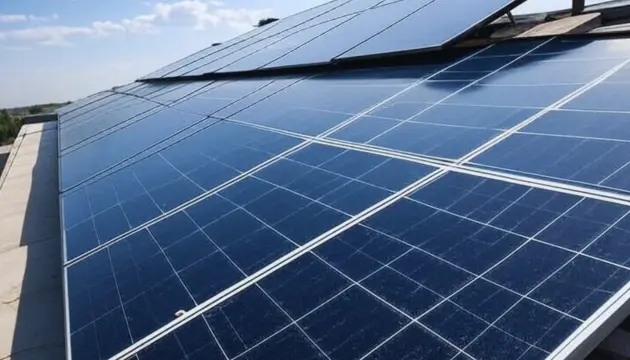ISLAMABAD: Deputy Prime Minister and Foreign Minister Senator Ishaq Dar has announced that the government has decided to reduce the sales tax on solar panels from 18 percent to 10 percent, following widespread opposition from parliamentarians and coalition partners.
Speaking in the Senate, Ishaq Dar said that 46 percent of the material used in solar systems is imported, and the government had initially proposed an 18 percent sales tax to encourage local production. However, after reviewing budget proposals and consulting with stakeholders, the decision was made to lower the tax to 10 percent.
His remarks come after both the Senate and National Assembly’s Standing Committees on Finance strongly opposed the proposed tax. The Senate committee, led by Senator Saleem Mandviwalla, approved a proposal to remove the 18 percent tax during a recent meeting. Similarly, the National Assembly committee, chaired by Naveed Qamar, unanimously rejected the tax, with members from all political parties calling it harmful to clean energy access.
The original proposal, announced during the 2025–26 federal budget speech by Finance Minister Muhammad Aurangzeb, aimed to promote local solar manufacturing. However, the move was met with backlash. Key government ally Pakistan Peoples Party (PPP) refused to support the tax, saying it would make solar energy more expensive. Sindh Chief Minister Murad Ali Shah and PPP leader Shazia Marri both warned the party would not back the budget if the tax remained.
— ALSO READ —
Govt allocates Rs150bn for Rawalpindi development projects
In his Senate address, Ishaq Dar also said Pakistan’s economy is gradually stabilizing and that the government is revising some budget proposals. He clarified that there were misunderstandings regarding the digital tax, explaining that provinces will have the authority to impose sales tax on digital services.
Dar said development projects under the Pakistan Infrastructure Development Company Limited (PIDCL) would be completed in all four provinces, replacing the Public Works Department (PWD). He also mentioned that discussions with the IMF are ongoing to address revenue losses.
The deputy prime minister further stated that funding for universities in Sindh would be increased, and emphasized unity in moving the country forward. He added that budget consultations with coalition partners are ongoing, with more than six meetings held just a day earlier.













